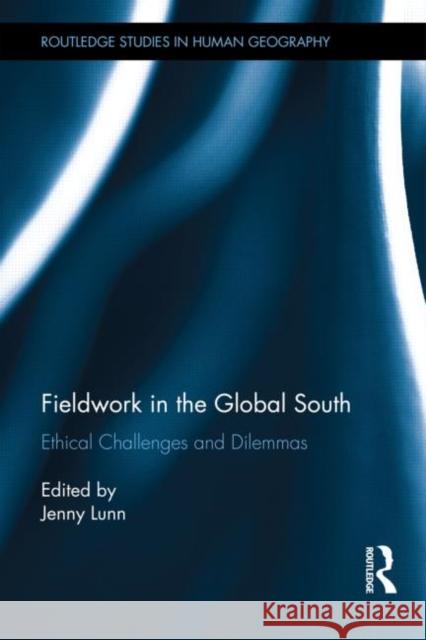Fieldwork in the Global South: Ethical Challenges and Dilemmas » książka
Fieldwork in the Global South: Ethical Challenges and Dilemmas
ISBN-13: 9780415628419 / Angielski / Twarda / 2014 / 290 str.
Fieldwork in the Global South: Ethical Challenges and Dilemmas
ISBN-13: 9780415628419 / Angielski / Twarda / 2014 / 290 str.
(netto: 716,30 VAT: 5%)
Najniższa cena z 30 dni: 705,23 zł
ok. 16-18 dni roboczych.
Darmowa dostawa!
Choosing to do fieldwork overseas, particularly in the Global South, is a challenge in itself. The researcher faces logistical complications, health and safety issues, cultural differences, language barriers, and much more. But permeating the entire fieldwork experience are a range of intermediating ethical issues. While many researchers seek to follow institutional and disciplinary guidelines on ethical research practice, the reality is that each situation is unique and the individual researcher must negotiate their own path through a variety of ethical challenges and dilemmas. This book was created to share such experiences, to serve not as a manual for ethical practice but rather as a place for reflection and mutual learning.
Since ethical issues face the researcher at every turn and cannot be compartmentalized into one part of the research process, this book puts them at the very center of the discussion and uses them as the lens with which to view different stages of fieldwork. The book covers four thematic areas: ethical challenges in the field; ethical dimensions of researcher identity; ethical issues relating to research methods; and ethical dilemmas of engagement with a variety of actors. This volume also provides fresh insights by drawing on the experiences of research students rather than those of established academics. The contributors describe research conducted for their master s degrees and doctorates, offering honest and self-critical reflections on how they negotiated ethical challenges and dilemmas.
The chapters cover fieldwork carried out in countries across Africa, Asia, and Latin America on a broad sweep of development-related topics. This book should have wide appeal to undergraduates, postgraduates, and early-career researchers working under the broad umbrella of development studies. Although focused on fieldwork in the Global South, the discussions and reflections are relevant to field research in many other countries and contexts."











